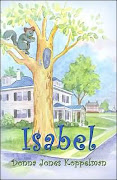Since we last spoke, my eldest daughter has had surgery on her ACL. The recovery has been a bit more 'exciting' than we anticipated, but she's coming along. Thanks for asking.
Now onward and upward with our Common Core Curriculum discussion. I have about a dozen interviews to share with you as we make this journey together. Each interview comes from a different perspective. These people are teachers, librarians, administrators, authors, etc. who are all involved in CCC in some way. I want to begin our discussion with Meghan, a fabulous fourth grade teacher in a self-contained classroom. Meghan has many good and helpful insights here. She is an excellent educator with many years of experience. I am grateful to her for sharing her thoughts with us. I hope you find them helpful. Her interview is the first of many, and if you know of anyone else who would like to share, let me know.
The goal is for all of us to learn as much as we can about the CCC and how it affects us, as writers. The added bonus is that we will be more informed parents, citizens and voters.
What kind of training have you received and do you expect to receive on the Common Core Curriculum? Common Core training began at the beginning of the 2011-2012 School year. We’ve had professional development days, training during faculty meetings, and collaborative planning to discuss the common core. The county has a team of teachers developing resources and lesson plans. The state has also posted webinars throughout the last 2 school years to extensively explain the new standards. We have also been trained on Close Reading and the continued use of Exemplars in math.
Summarize the Common Core Curriculum in 1-3 sentences. The Common Core is a plan to align curriculum across the grade levels and the United States. If we are teaching our students that we live in a global community, then our curriculum must reflect this understanding. Students no longer live in one state their entire educational career and must experience continuity in their learning regardless of how many times they move.
How will the changes affect teachers, students and librarians on a daily basis?
The Common Core is definitely more rigorous and requires students to think on a much deeper level, most times providing evidence from the text to support their answers. They must make deeper connections. The biggest “shock” will be in the end of grade assessment which is the PARCC in my state. Multiple choice questions will be replaced with short answer responses.
How can writers of children’s literature help support the Common Core Curriculum? Children’s literature should continue to provide quality characters and plotlines that encourage children’s love of reading. They should include a clear theme and even some advanced literary devices (i.e. foreshadowing and figurative language).
What new resources are needed to support this curriculum? As the standards change, the textbooks remain aligned to the old standards (until a new adoption takes place) and are no longer useful. We need common resources easily accessible on the internet.
In your opinion, is the CCC just another passing fad, or do you think it will be around for a while? I hope it will be around for a while in some form. We can no longer act as independent states when educating our children; we must work together as a nation in order to prepare our children to be competitive in a global society.
Is there anything else you would like to say about the Common Core Curriculum? Change isn’t always easy, but it’s necessary sometimes.
Meghan made a number of important points here. The most thought-provoking one, to me, related to the resources. She said, "We need common resources easily accessible on the internet." This statement reflects a big shift on thought on resources in the classroom. When I was a young teacher, I spent hours at the library in research on extra information for units of study. I imagine most teachers do this research on the computer now. So does that mean we need more information online geared toward teachers? More checks and balances on the ACCURACY of information found online? Or more nonfiction books available for electronic purchase and/or loan? Are we doing the best job of marketing, informing teachers, and making books easily available for class room use? (aside from the library in their own school)
Teachers, when you google a subject, for example, how often does that question lead you to a book? More often, I'd guess, it leads you to a website. Is that good or bad? What does that have to do with me, a writer? My job is not writing books, per se, my job is writing content, regardless of how it is accessed. Or is it? What do you all think? (or is it too soon to say?)
Thanks, again, to Meghan for getting us off to such a great start. Meg, I am sending a 'thank you' gift to your class. Please email me your school's address, so I can send it along.


No comments:
Post a Comment